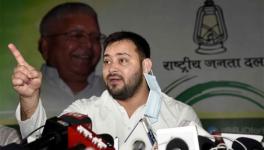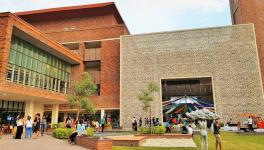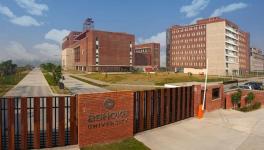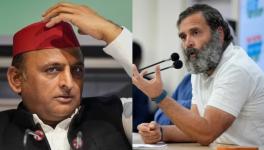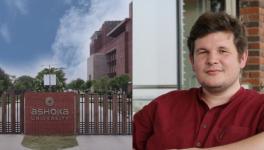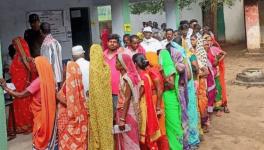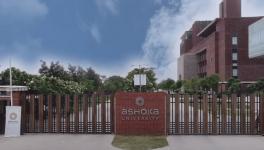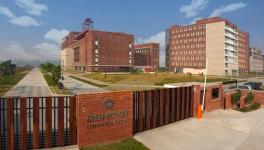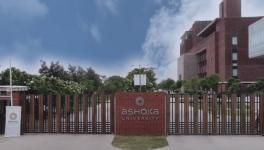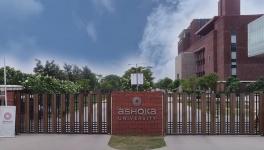Ashoka Election Fraud Paper Row: University is More Than its Administration
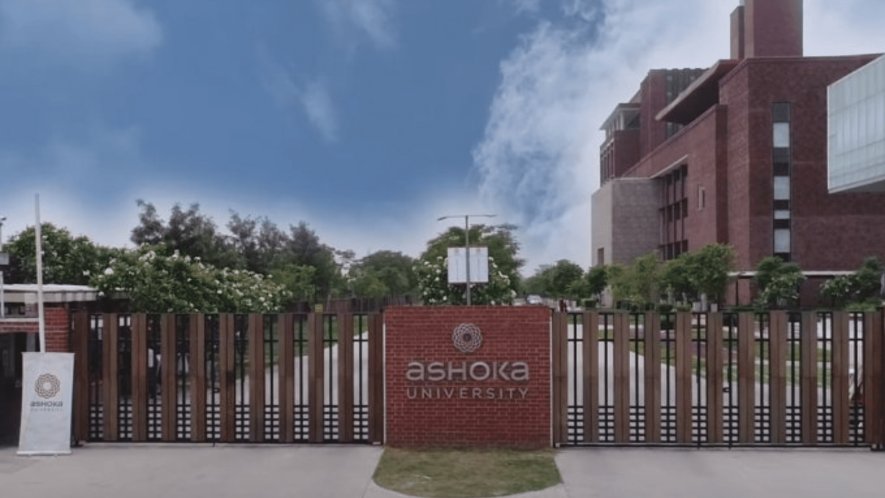
Ashoka University. Image Courtesy: ashoka.edu.in
Can the administration of a university appropriate the voices of the other units of that university and make public declarations on their behalf? We must think hard about this, especially in India, where university administrations are continuously engulfing other units for the sake of political correctness and political mileage.
This is exactly what has happened at the holy grail of Indian elite private universities in Sonepat, Haryana, where the administration of Ashoka University has thrown a faculty member under the bus for speaking truth to power and defending that truth with critical understanding.
The faculty member, Sabyasachi Das, published a research paper on how the ruling party at the Centre fudged—“manipulate”—the outcome of the 2019 General Election is not just an intellectually engaging outcome but an act of bravery in India today.
Having said that, it is no surprise that the university’s administration has made a public declaration on social media clearly demonstrating that it does not support the intellectual output of its own faculty members. This is despite all the head-hunting it does to hand-pick scholars with impressive global exposure.
The declaration, if read carefully, falls short at several levels, but I will only pick two aspects here. Firstly, a working paper is not a part of one’s social media activity and public activism—though to share the paper on social media could definitely be. As scholars, we regularly upload our working papers on, for example, Academia.edu and ResearchGate, for our own peer review and discussions, while the institutionalised peer-review processes go on in parallel. This is a common practice and not an aberration.
Secondly, when the university administration declared its distance from the social media activities of faculty members and students, it assumed the role of the patriarch speaking for the entire community—it chose to synonymise ‘university’ and ‘university administration’. The two are not the same—a university is not the same as its administration.
Every institution has an administration, but only universities have students and faculty members as the fulcrum of imagination and ideas, critical thinking, research, debunking, questioning, which separate it from other institutions. This is—or ought to be—equally true for all universities anywhere in the world, whether funded by public money or private investors.
A university is like a society where, alongside having a community, we also have a state. Without community, a state is an empty vessel. Although they co-exist, the interests of the community are rarely upheld by the state. Similarly, at the heart of a university lies its scholarship, which emerges through the intellectual activities of the students and faculty members i.e. its community members.
Meanwhile, the university administration is responsible for running the daily activities of the institution, and not for estimating the intellectual outputs of the scholars, be they students or faculty members—unless it is fearful of another institution, bigger than itself, whose reputation could be affected by the intellectual activities of the scholars the university hosts.
No prize for guessing who the university administration in this context is scared of and would walk a hundred miles to appease. However, the university administration, which includes several intellectuals, could have chosen to remain silent and away from the right-wing threats and bullying. But what it could not risk is the possibility of that silence being considered as tacit support for the faculty member concerned.
Therefore, like the state which seldom acknowledges the interests of its community members, the university administration chose to actively declare its disapproval of the intellectual output of one of its own faculty members.
I am reminded of a comparable situation where I was subject to severe right-wing bullying and trolling from India a few years ago. At the time, I was fully supported by my then employer, a university located outside India. Despite several provocations on social media to release a statement disapproving and even firing the employee, the university administration continued to do just one thing—nothing. They released no public statement whatsoever but continued to offer me all kinds of support (emotional, legal) until the matter subsided.
Here, too, the administration of the university in Sonepat could have just stayed away from any public engagement. But the fact that they made an effort to withdraw all institutional support from the faculty member and his scholarship points to the façade under which such enterprises conceal the hollowness they represent. It shakes us up one more time with the realisation that there is little space left for intellectual debate, dissent and critical thinking in Indian academia today.
The author is a sociologist based in Germany. The views are personal.
Get the latest reports & analysis with people's perspective on Protests, movements & deep analytical videos, discussions of the current affairs in your Telegram app. Subscribe to NewsClick's Telegram channel & get Real-Time updates on stories, as they get published on our website.









